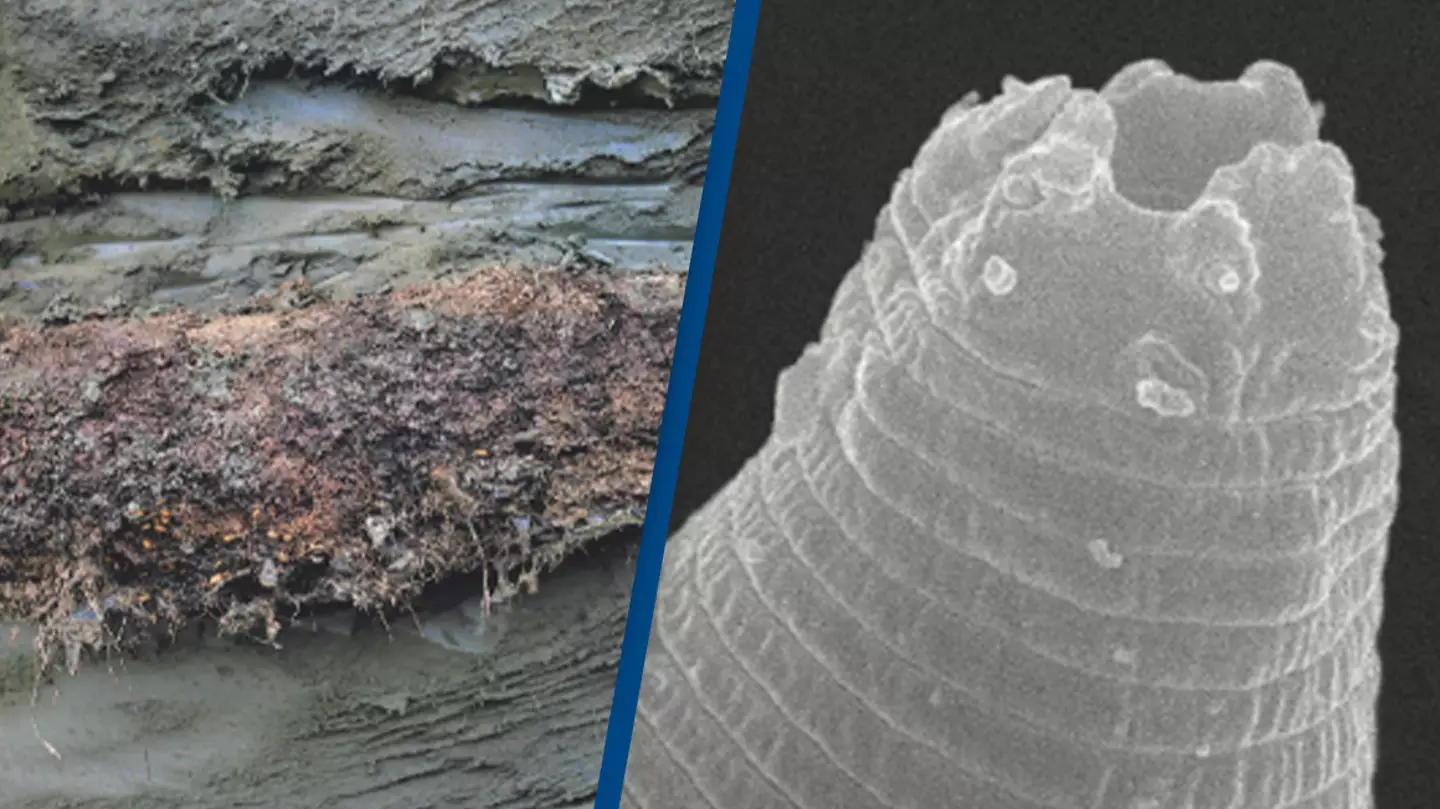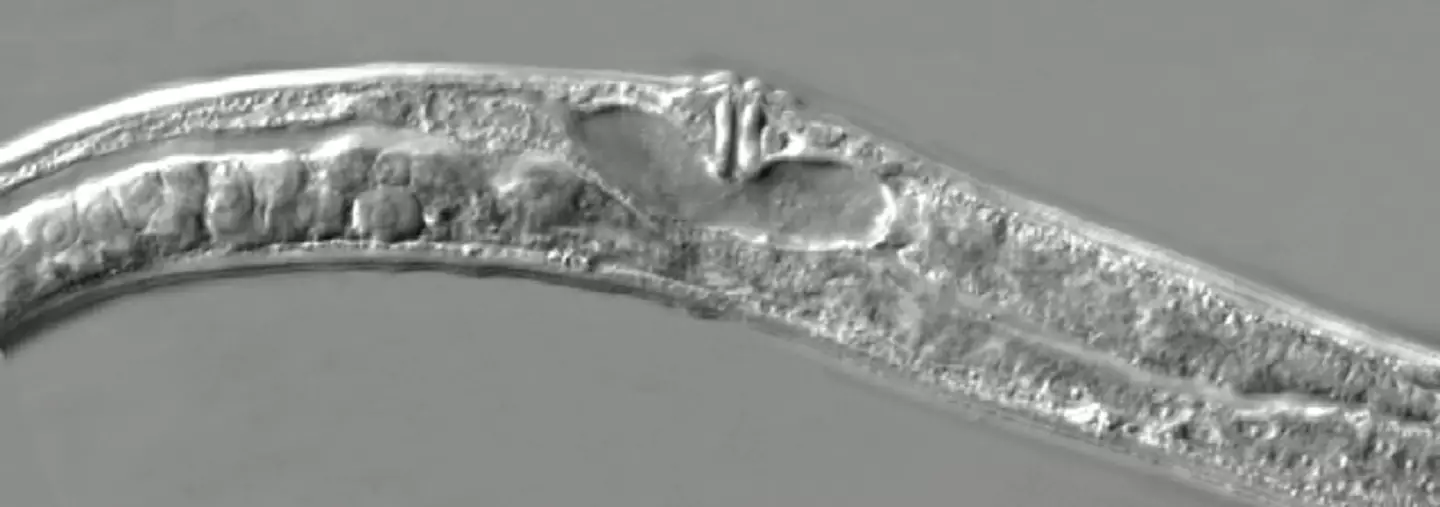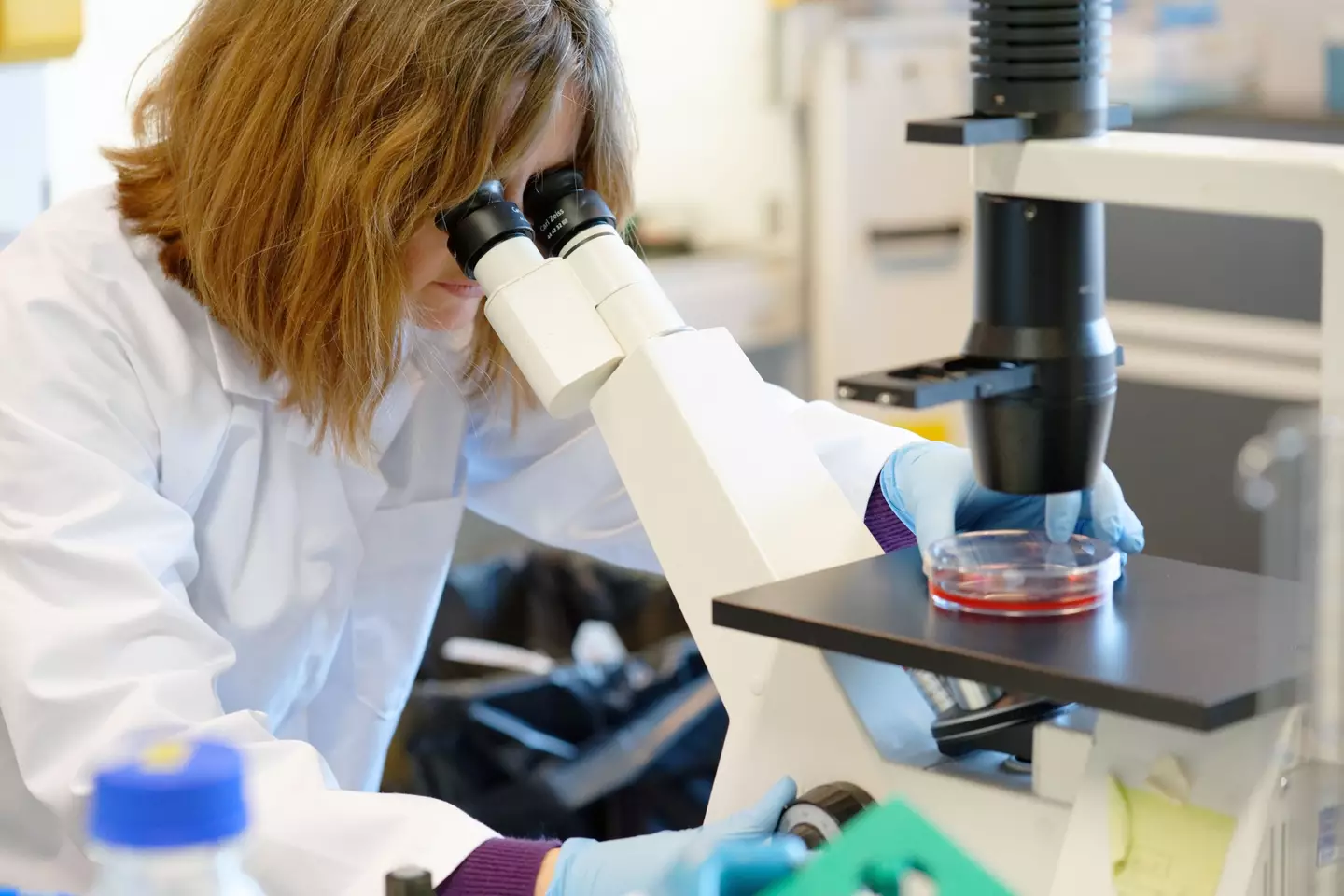
Scientists have resurrected a tiny, microscopic worm that had been ‘living’ in the Siberian permafrost for the last 46,000 years.
In a study published in PLOS Genetics, a group of scientists carbon dated and sequenced the genome of two nematodes, revealing they were from the late Pleistocene era.
Nematodes, better known simply as roundworms, have the ability to become extremely inactive when they are surrounded by challenging environmental conditions which is called cryptobiosis.

Advert
When in a state of cryptobiosis, an organism will stop a lot of key bodily processes such as metabolism, reproduction and development in order to survive the extreme weather conditions.
Back in 2018, researcher Anastasia Shatilovich, came across the two nematodes that were in cryptobiosis in the sub-zero temperatures of the permafrost.
Taking the nematodes back to the laboratory, the group of researchers was able to slowly thaw the worms back to life and took them out of their extreme state of cryptobiosis.
The scientists were then able to analyze plant material that the nematodes had eaten before they went into cryptobiosis and dated the nematodes to be around 46,000 years old.
Advert
It was believed that these worms could only stay in a state of cryptobiosis for just under 40 years, but these new findings suggest they can spend millennia in the suspended state.
“Our findings demonstrate that nematodes evolved mechanisms potentially allowing them to suspend life over geological time scales,” the scientists wrote in their paper.
This discovery is crucial in order to help scientists better understand our own evolutionary process as well as the long-term survival of individual organisms.

Advert
The findings might also be the first step in figuring out how science can bring back extinct species, however there are still a lot of missing pieces to fill in.
Genetic sequencing of the nematodes also found they were a different species to the nematode, Caenorhabditis elegan, which currently roams the earth.
Instead, the two nematodes found in the Siberian permafrost were classified at a previously-thought-extinct species Panagrolaimus kolymaensis.
After thawing the Panagrolaimus kolymaensis, scientists have been able to help reproduce 100 generations of the nematode, bringing the species back from extinction.
Advert
As the Earth records its hottest day on record, studying how organisms are able to survive extreme weather conditions may prove to be useful.
